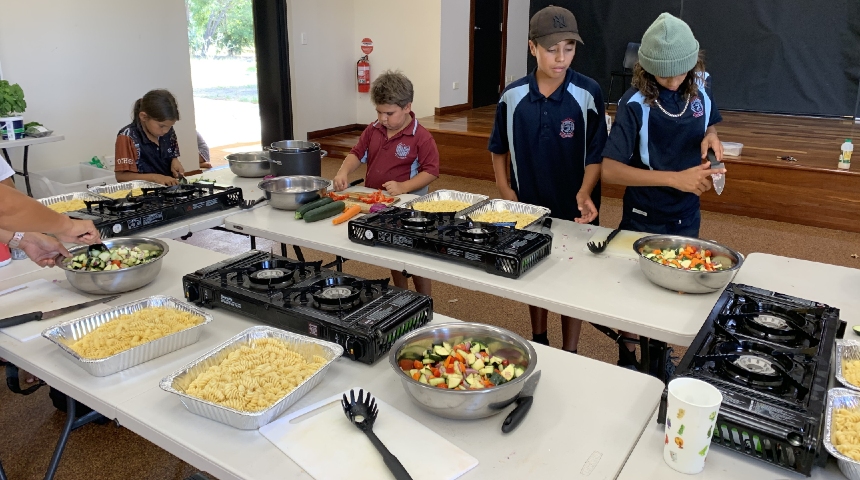Media release
From:
How traditional bush foods are transforming health and school attendance
A number of junior schools across Australia have adopted some form of cooking practice into their curriculums – but certain fundamentals are missing.
Critical life skills such as kitchen safety, meal planning, budgeting for groceries and how to safely store food are the keys to food literacy.
This is where the Deadly Koolinga Chefs Program comes in.
Using STEM principles and Traditional Knowledge, primary school students in participating schools across the Bindjareb (Peel) Region in WA are taught these skills, and also learn how to find and prepare Traditional Bush foods.
Led by Associate Professor Caroline Nilson, the program is a co-designed project between Bindjareb Aboriginal organisations, Murdoch University’s Coolamon Research and Advocacy Centre, Ngangk Yira Institute for Change and the School of Nursing.
With the support of local Aboriginal community groups, the culturally-safe program particularly focuses on ways to improve nutritional health and social outcomes for Aboriginal children and adolescents and, by association, their families.
Associate Professor Nilson said the program was transforming the way students thought about and engaged with cooking and helped them to build confidence and self-efficacy.
“The children’s sense of joy and pride to be taking home the meal they prepared from scratch to share with their family is a gift in itself,” she said.
“To see the children become totally engaged in the food preparation process and cooking is inspiring.”
More than 3,500 children have attended the program since its inception. Professor Roz Walker, Director of Coolamon Centre, said the pilot program showed transformative impacts on health outcomes, student behaviour, school attendance and nutrition knowledge.
These results also align with the target of the WA Closing the Gap Implementation Plan.
"The classes are delivered weekly throughout the school term, and are also helping to inform the development of an Aboriginal nutrition promotion framework which can be used by communities across the state," Professor Walker said.
Associate Professor Nilson added that the embedded STEM skills into the classes helped the children realise how calculating weights, measurements and volumes were life skills with real-world applications.
“In the words of one child, ‘now I see why I need to know what grams are... it’s so I can read a recipe’,” she said.
Later this month, the Deadly Koolinga Chefs Program Roundtable event will be held at the Food Innovation Precinct WA in Peel.
It will bring together local Aboriginal community organisations, government, industry and school principals.
Professor Fiona Stanley (AC) will speak to the need for culturally appropriate programs and the importance of nutrition for long term health and wellbeing of all children.
Researchers will present the program’s successful outcomes and explore collaborative, multisectoral strategies for securing funding to expand the program to more schools, changing young lives one fresh meal at a time.



 Australia; WA
Australia; WA


